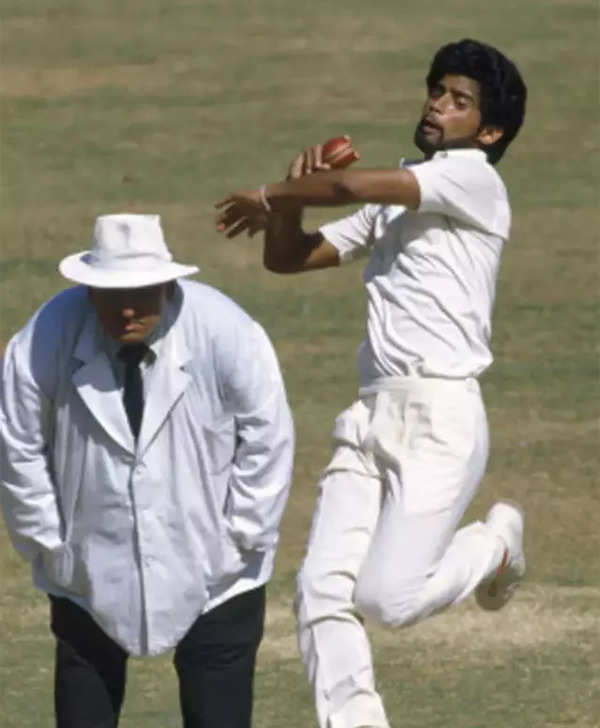The journey of India and New Zealand in the ODI World Cup has been a rollercoaster ride, marked by intense competition. While Team India boasts a rich history in the tournament, New Zealand, often considered the underdogs, have consistently surprised the world with their grit and tenacity. In fact, New Zealand enjoyed a 5-3 head-to-head advantage against India in the World Cups.
The India-New Zealand rivalry in ODI World Cups can be traced back to 1975 when the inaugural edition of the tournament took place in England. Both teams were relatively new to the ODI format, and this laid the foundation for a captivating rivalry that has continued for nearly five decades.
1975: First World Cup encounter
India and New Zealand faced off for the first time in the inaugural edition of the World Cup, and New Zealand emerged victorious. The Kiwis won by 4 wickets, thanks to an amazing knock from the Kiwi legend, Glenn Turner (114* runs off 177 balls) which marked the beginning of a captivating rivalry.
1979: The Kiwi dominance
India and New Zealand again faced each other in the next edition of the World Cup in 1979. The Kiwi bowlers led by Lance Cairns and Sir Richard Hadlee dominated the Indian batting line-up and won the match comfortably by 8 wickets.
1987: The Kapil Dev show
After 8 years of waiting, these two teams resumed their World Cup rivalry in the 1987 edition. India, led by the legendary Kapil Dev, managed to overpower the Kiwis in a low-scoring thriller, making it the first-ever victory against the Kiwis in World Cups.
1987: Chetan Sharma’s historic feat
The two teams met for the second time in the 1987 edition, and India’s Chetan Sharma (3/51) demolished the strong Kiwi batting line-up while scripting history by becoming the first bowler to grab a hat-trick in World Cup history. In the second innings, Indian batting led by the legendary Sunil Gavaskar, who scored his only ODI hundred (103* runs off 88 balls) in the match, clinched a comfortable victory for the home side.

(Getty Images)
1992: The emergence of Sachin Tendulkar
Batting first, India lost their openers early but a young Sachin Tendulkar and skipper Mohammad Azharuddin stitched a crucial partnership to set a decent total. But the Kiwis were all over the Indian bowling line-up and chased down the target easily. The game witnessed a patient and sensible knock from Tendulkar, who scored 84 runs off 107 balls under pressure.
1999: Kiwi maintained their dominance
In a do-or-die battle to qualify for the semi-finals in the 1999 edition, both India and New Zealand locked horns at Trent Bridge. Riding on Ajay Jadeja’s 76, India posted 251 batting first. But Indian bowlers had no answers to the Kiwi batters and New Zealand went on to win the game and knocked India out of the World Cup.
2003: Indian bowlers put up a show
In the 2003 World Cup, India faced New Zealand in a crucial group-stage encounter in Centurion, South Africa. India emerged victorious in this high-pressure match, winning by seven wickets. The Indian bowlers, led by Zaheer Khan (4/42), put up a show and bundled out the Kiwis for just 146. India then chased down the target comfortably, with Mohammad Kaif scoring an unbeaten 68. This win played a significant role in India’s journey to the final.

(Getty Iamges)
2019: Kiwis broke Indian hearts
The most recent encounter between these two sides occurred in the semi-final of the 2019 World Cup at Old Trafford, Manchester. New Zealand posted a modest total of 239/8, and India were expected to chase it down. However, New Zealand’s bowlers, led by Matt Henry (3/37), had other plans. They produced a stunning display of swing bowling, and India fell short by just 18 runs.

(Getty Images)
2023: Clash of the table-toppers
The cricketing world awaits the upcoming India-New Zealand encounter in Dharamsala, scheduled for October 22. Both teams have stunning starts to the tournament and are the only two unbeaten sides left. With four wins in a row, they have collected 8 points each so far, with the Kiwis on top of the points table ahead of the hosts via better net run rate.
Shardul Thakur: Team India’s go-to allrounder

